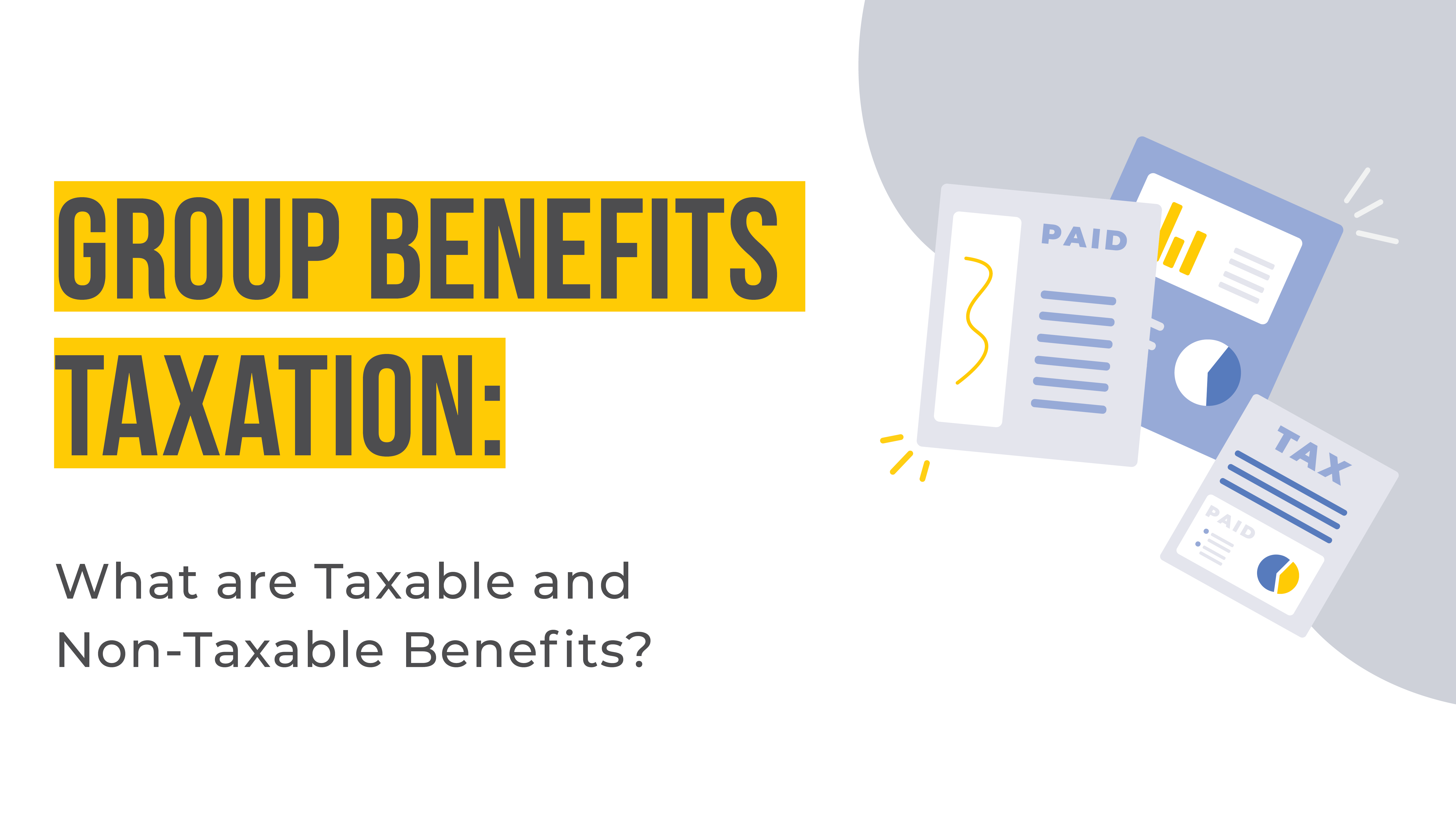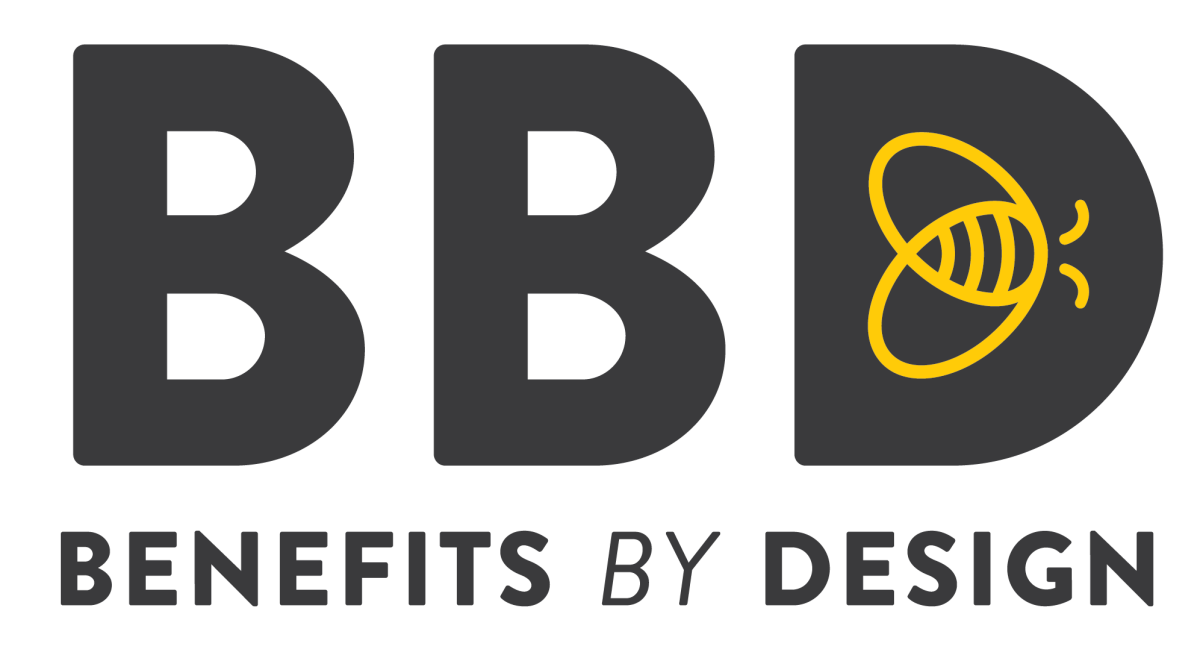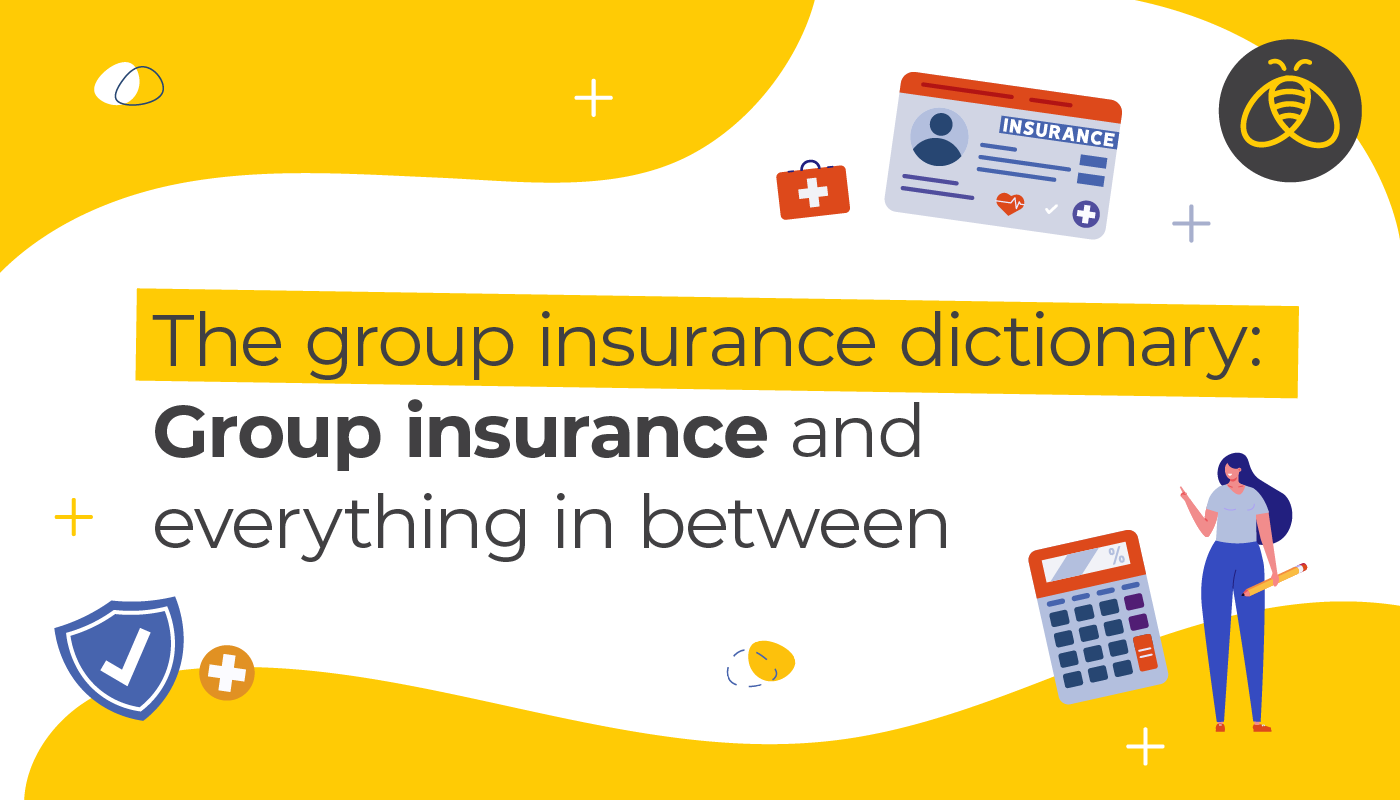Group Benefits Taxation: What are Non-Taxable and Taxable Benefits?
By: Benefits by Design | Tuesday February 16, 2021
Updated : Tuesday July 26, 2022
Everyone’s favourite time of year is just around the corner: tax time.
Benefits and taxation are complicated — and we’re covering both! — so bear with us as we explain the connections.
This article focuses on the tax implications and considerations for employees. In a future edition, we’ll turn our attention to the employer considerations. But first, a quick disclaimer: we recommend discussing these concepts with your tax authority.
What is the Tax Treatment of Employee Premiums?
Employees’ premium payments for Life Insurance and Dependent Life Insurance, Accidental Death and Dismemberment (AD&D) Insurance, Critical Illness Insurance, Extended Health Care (EHC), Dental Insurance, and other benefits are deducted from their after-tax paycheque.
What are Taxable and Non-Taxable Benefits?
Some employee benefits are considered a taxable benefit, while others are non-taxable. The status of whether a benefit is subject to taxation can vary. For example, Disability Insurance can be taxable or non-taxable, depending on circumstances (more on that below).
When we talk about taxes and employee benefits, there are two things to consider: premium payments (the cost of benefits) and benefits payouts (reimbursement or payments).
Did you know? A new Canada Revenue Agency (CRA) guideline allows eligible Canadians who are working from home to claim up to $400 in home office expenses on their personal tax returns for 2020. This can be done without an employer-provided T2200. You can learn more here!
#1. Premium Payments
In most cases, employees and their employers share the cost of an employee benefits plan through an arrangement known as cost-sharing. The employer’s share of benefits premiums paid is considered income for the employee for tax purposes. This is the case for many benefits*, including:
- Life Insurance
- Dependent Life Insurance
- Accidental Death and Dismemberment (AD&D) Insurance
- Critical Illness Insurance
As an example:
If your Life Insurance benefit costs $20.00 a month and your cost-sharing with your employer is 50/50, you’ll pay $10.00 a month. Assuming you’re paid semi-monthly, you’ll see a deduction of $5.00 for your Life Insurance on each pay cheque. In this case, the $10.00 paid by your employer is taxable and their $10.00 contribution each month is counted as income on your taxes.
*Additional benefits may be subject to taxation depending on your province of residence. For example, in Quebec, Extended Health Care (EHC), Dental Insurance, and Health Care Spending Accounts (HCSA)s may have taxes applied to their premium payments.
Did you know? Certain employee premiums paid for a group plan plus certain out-of-pocket expenses may be eligible for a medical tax credit on their personal tax return when greater than 3% of net income.
#2. Benefit Payouts
The second consideration for benefits and taxes is whether or not what you receive from your benefit after a claim is approved is subject to tax. Generally speaking, most benefits payouts are not subject to tax, particularly if the premium payments are already taxable. After all, you don’t want to pay taxes twice, right?
Let’s expand on the Life Insurance example above.
If the Life Insurance policy you pay $10.00 a month for is $50,000, your named beneficiary receives the full $50,000 upon your death. Why? Because your $10.00 a month premium payment is counted as taxable income, so you’ve already paid taxes.
The same is true for other benefits whose premium payments are considered taxable income, such as Dependent Life Insurance, AD&D Insurance, and Critical Illness Insurance. EHC and Dental Insurance eligible claims are also received tax-free regardless of the cost sharing of the premiums.
However, there is one benefit that has special consideration when it comes to taxation: Disability Insurance.
The Curious Case of Disability Insurance and Taxes
Disability Insurance stands alone in how it is taxed (or not taxed, depending on circumstances).
If the premium for Disability Insurance is 100% employee-paid, then any benefit payments made to the employee following an approved claim will be non-taxable. So if a Disability benefit provides you with $1,000 bi-weekly, then you’ll receive the full amount.
If any portion of the premium for Disability Insurance is employer-paid, then any and all benefit payments made to the employee following an approved claim will be taxable. So if a Disability benefit provides you with $1,000 bi-weekly, you’ll receive that amount less applicable taxes.
Alternatively, employers can pay the premium for Disability Insurance and add the amount of the premium cost as a taxable benefit to the employee at the time of premium payment. This allows the benefit paid to an employee who goes on Disability to be treated as non-taxable income (since the tax has already been paid).


